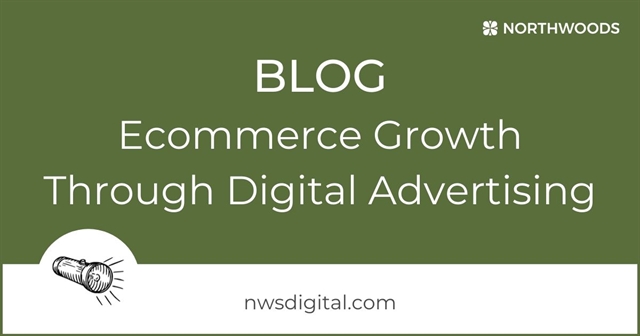By Northwoods Team
December 28, 2020
4 Minute Read
Connected TV advertising is one of the fastest growing industries. Many companies are shifting their traditional TV advertising budgets over to Connected TV. But what is Connected TV? How is it different from traditional TV advertising? And is it right for your company?
Here, we break down the answers to these questions and more.
What is Connected TV?
Connected TV is essentially any TV, computer or device that allows you to connect to the internet and stream video content. Roku, Amazon Fire Stick, gaming consoles like Xbox, and even your laptop are all considered connected TV. Any video content that comes through the internet, instead of a traditional cable connection, is considered connected TV.
Connected TV uses applications such as Netflix, HBO Max, Hulu, and hundreds more to provide video content to users. These applications are known as OTT, or Over-The-Top, meaning that they provide video content over the top of the internet. CTV (connected TV) and OTT are typically used interchangeably to talk about any advertising that is provided through video streamed on the internet.
How Does Advertising Work on Connected TV?
When users stream video content on their connected TV devices, they are served ads before, during or after the show they watch. Some applications show more ads than others while the user streams his or her favorite show or movie. Most ads that appear on connected TV are 15 to 30 seconds in length.
CTV advertising is run through private marketplace applications where marketers can pay for ad placements.
Why Consider Connected TV Advertising?
Because CTV runs through your internet service, the targeting can be much more effective than traditional TV advertising. Instead of advertising during a football game, hoping to reach male viewers aged 24-29, you can simply target them anytime they're streaming video content, no matter what show or movie they're watching.
This type of audience targeting helps you save money because every cent of your advertising dollars is spent directly on your target audience.
Beyond traditional demographic targeting, some CTV platforms also allow you to target audiences by other parameters, such as individuals who are in the market for a particular product. Because video viewing is connected through the internet, advertisers can target people based on their online search history, as well. This means you can directly target by demographics and for people who are actively searching for your product.
Finally, connected TV taps into overall online behavior by remarketing video ads to those who have visited your website, or remarketing display ads to those who have seen your video ad recently. This blending of CTV video targeting and digital remarketing can be incredibly powerful for building brand awareness and converting those viewers into customers.
How to Measure Success
Traditional TV advertising has always been a guessing game. We know how many people viewed certain shows, but we don't know if the ads that ran during them were watched, who watched them and if that resulted in traffic to your website, or even conversions.
All of these metrics are available through CTV advertising. Because viewers are often on a device that allows clicking, you can measure click-through-rates on your video ads, website traffic from your ads, and conversions that came directly from them. Additionally, you can measure view-through conversions - even if the user didn't click on your ad, connected TV allows you to understand if conversions on your website were connected to a user's viewing of your ad on their device.
This makes CTV incredibly powerful for measuring the success of your video advertising - allowing you to measure ROI like never before.
Who Should Invest in Connected TV?
Similar to traditional TV advertising, connected TV advertising is best suited for the B2C space. For those organizations that have wanted to pursue traditional TV advertising but found the prices for traditional media buys too high to fit into the budget, connected TV is a great way to extend your digital advertising dollars and target your audience when they're watching.
Like all digital marketing tactics, CTV should be evaluated as part of your overall digital marketing strategy. It's important to consider all tactics. Though it may not be a good fit for every business, it offers a unique blend of traditional and digital marketing that just might be the right thing at the right time for you.
If you're interested in learning more and determining how Connected TV might fit into your marketing mix, let's talk! Reach out to us here.
Related Blog Posts

We’re here to guide you through dynamic search ad campaign process, with a quick and easy tutorial and custom tips to help create a dynamic search, get it up and running right away, and get the most out of your campaign.

Has your ecommerce business ventured into digital advertising yet? Digital advertising fuels growth for any ecommerce play. In this case study Northwoods shows how your ecommerce business could thrive through digital advertising. Read on to learn more.

Proximity marketing, also known as location-based marketing, aims to advertise at users as they visit a specific “geo-fenced” location or after they have left that location. Learn how to implement proximity marketing in your marketing strategy.